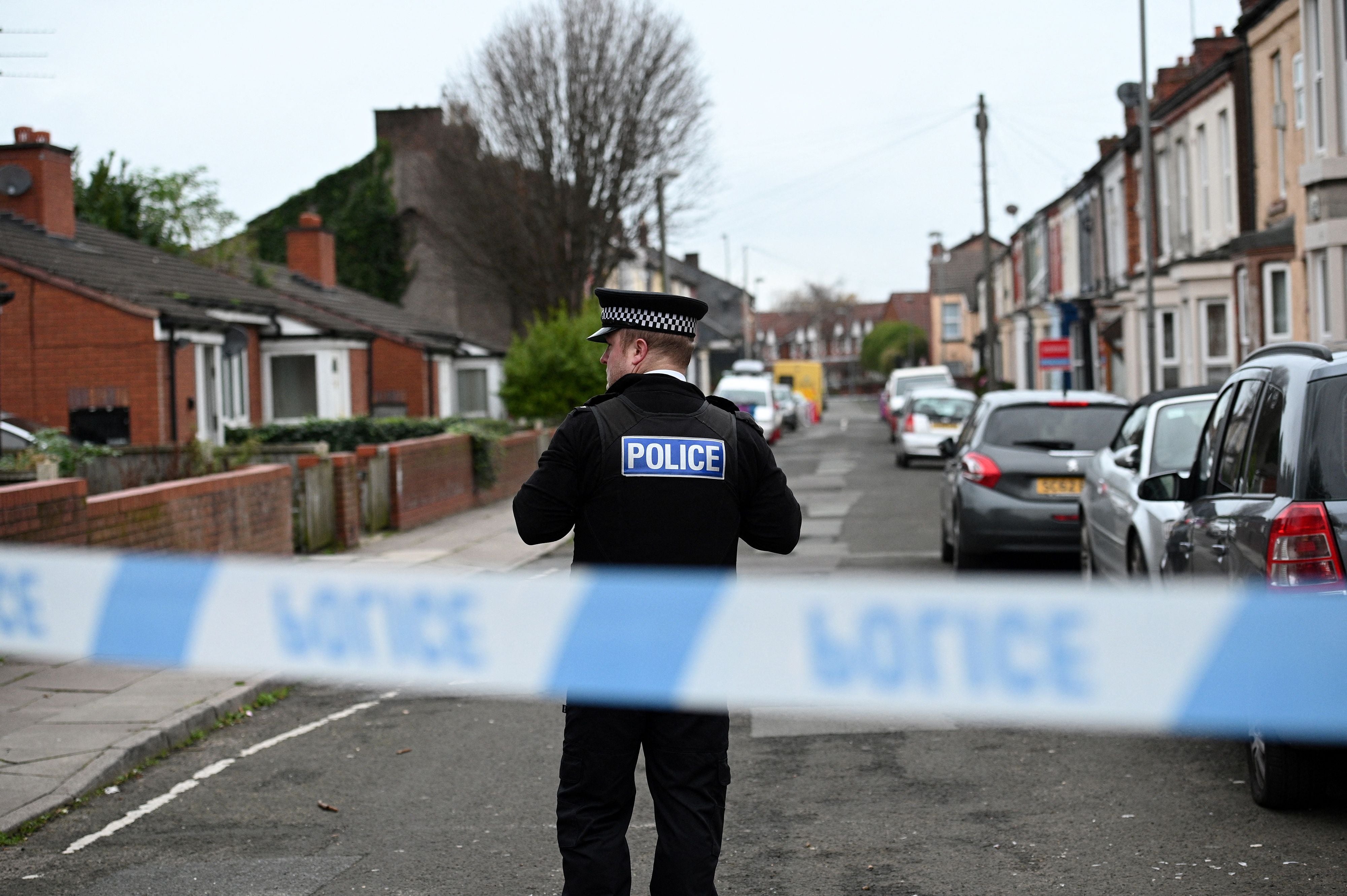Stopping terror attacks is ‘more difficult than ever’, police chief warns
Exclusive: The main terror threat to the UK now comes from ‘self-radicalised’ people using basic attack methods

Preventing terror attacks is “more difficult than it’s ever been”, one of Britain’s most senior counterterror police officers has warned in an exclusive interview with The Independent.
Dean Haydon, the senior national coordinator for Counter Terrorism Policing, said changes to the way attacks are planned, targeted and carried out had made them harder to spot, while the profile of terrorists has “completely changed”.
“The main threat we currently see is from people within this country that are being self-radicalised,” he added.
“The timelines have been shortened. You can go out and buy a kitchen knife in a supermarket and decide, ‘This afternoon I’m going to commit an attack at X location’. In the name of whatever ideology, and it’s a terrorist attack.
“Would we see that coming? That’s really difficult to detect. Our collective challenge is far more difficult than it has ever been.”
Almost every terror attack launched in Britain since 2017 has been carried out by a lone attacker, including the recent Liverpool bombing.
The security services say 32 plots have been foiled in the same period – 18 jihadist, 12 far-right and two from other ideologies.
The extreme right-wing threat has grown significantly in recent years, and now makes up around 13 per cent of cases currently being handled by counterterror police, while the bulk remain jihadist.
The majority of terror suspects arrested by police are now white and British, while the average age has been falling and record numbers of children are being detained.
“The profile of a terrorist has completely changed, and that comes back to how the threat has changed,” Mr Haydon said. “We are dealing with individuals who are self-radicalised, that are looking at extremist materials online.”
The officer said that in the Noughties, terrorists were mainly “stovepiped” into consuming online material by a single group they supported, whereas people now “mix and match” violent propaganda from a range of ideologies.
A resulting shift away from complex plots involving in-person networking to self-initiated attacks by people radicalised online “presents challenges” for police and the security services by reducing opportunities to detect them.
“You’ve got no command and control mostly, so you’ve got people in their head who have decided, after looking at material, that ‘I’m going to go and commit an attack’,” Mr Haydon said. “They’re not waiting for some kind of direction or approval from above.”
Mr Haydon said that some groups, including al-Qaeda and Isis, still aspire to commit a terrorist “spectacular”, but find it easier to incite supporters to act alone through online material.
“People can access literally anything online,” he warned. “Where previously you had to go to a training camp in a desert somewhere, now you just have to look online to make an IED.”
Isis’s jihadi propaganda has long exhorted the use of knives and cars in deadly attacks on people, rather than complex explosives that take time and knowledge to create. Its propaganda has contributed to a shift in the way Islamist attacks are carried out, after declaring that any “disbelievers” should be killed, in any place, without prior permission.
That change has also reduced chances to spot plots, Mr Haydon said, by lowering the cost of acquiring what is needed, which means there are no “money trails” for police to follow.
“If you put all five of the 2017 attacks together – Westminster, Manchester, London Bridge, Finsbury Park mosque and Parsons Green – all of their planning, the weapons they brought, the vehicles they hired, the precursor chemicals, came to less than £5,000,” he added.
“People are looking at everyday items and stuff you can access legitimately online – you don’t need vast amounts of money to commit an attack now.”
Targets have increasingly moved away from high-profile landmarks, government and military locations, to seemingly random public places with little or no security.
As a result, police have launched “action counters terrorism” campaigns to inform the public of potential warning signs and encourage them to report any concerns.
“We do need parents, family members, we need the whole of the system to be flagging people that are a concern,” Mr Haydon said.
“The terrorism threat and the challenge that we all face trying to stop attacks has become ever more difficult.”
He added that coronavirus lockdowns had created a “perfect storm” by leaving people more isolated and vulnerable to online radicalisation, as support from agencies and loved ones reduced.
Anyone with concerns is asked to visit the Act Early website or call the confidential Police Prevent Advice Line on 0800 011 3764.
Join our commenting forum
Join thought-provoking conversations, follow other Independent readers and see their replies
Comments


Bookmark popover
Removed from bookmarks